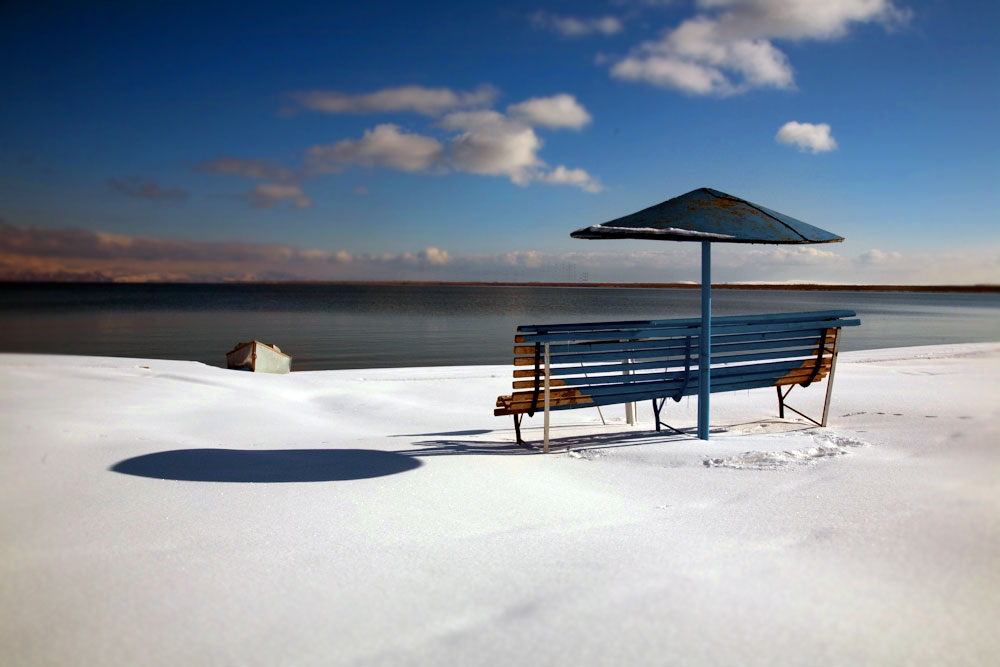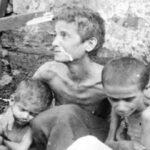
PREVIOUSLY we left 7 year-old Daniel dealing with theft.
FROM DANIEL’S DIARY
56- Theft the rule of the bakery.
‘There were many accomplished ways and methods of stealing from our customers. This was one fact that justified bakery workers to boast of being “next to the worst people” in Aintab.
1) Meat was brought to us for making Lahmajin (Armenian pizza). The customer had heard and knew that some of it would be stolen so he would keep a sharp eye on the journeyman who was working on the Lahmajin, but in spite of all his watchfulness, the meat would be stolen when he winked and sneezed or was in anyway distracted. In such an appropriate moment the lump of meat in the hands of the journeyman, intended for Lahmajin would instead fly to the flour box (eolbé). Then he would ask me to bring him some flour, I knew what this meant: I had to take the meat in case the suspicious customers crossed the obstacles, and came in to find the stolen meat.
2) Another regular procedure of theft took place when rich customers brought in pure wheat dough for baking. We would always lift a good part of it for us to eat and the rest to be added to our dough, which was of very inferior quality and full of worms. The master’s family and the bakery workers always used this far better quality of bread.
Customers realized what was happening and brought their bread opened up as loaves with a hole in the middle, but even then we had orders to cut a little from each loaf before baking. Sometimes when the workers were too greedy they would cut so much that the hole would be to one side, instead of being at the center, thus inviting suspicions.
3) We would steal egg plants and Indian corn on the cob, even though they were counted before being baked. Then there would be a long argument about the number of eggplants or corns.
3) Another method of theft was giving customers short weight, for one thing, we would sell bread while hot and heavy, also, my master while weighing, would throw the bread on the scales with some force and without waiting, taking it back to the customer. These things could be done because it was a sellers’ market, the demand was so great and so insistent’.
57- “My” brothers fight.
It must have been sometime in 1918 when Mihran (the 2nd son) returned from his military service and we were all very glad. He was much more popular in the family than Artin Jr. because he had been suffering in the army while Artin was wasting the money of his father in ransoms, bribes and in gambling. Mihran was the loyal son and Artin the prodigal son.
Mihran was told about the “fabulous” sums of money the family business had made while he was away, so he asked his brother to account for it. Every time Mihran said this, Artin would throw out to him a large bag of coins he always carried in his inner pocket. Mihran would ask for the main treasure of gold pounds and Artin would deny the existence of such a thing, then Mihran would assault him and the fight would start.
– Artine, paraye chkart.
– Al, basheneyésin.
– Bou sénin bashene yéssin, altoun lare che kart.
– Hépisi bou dour bashka para yok.
– Walla, namessez, it oghlu it, deyous sén Barmaksez oghlu isén bén dé Barmaksezeu oghlu im.This argument went on all night every night and ended by throwing chairs at each other, and often rushing at each other with kitchen knives. At such times the father would helplessly beg them to stop, the mother would sob and Artin’s wife would cry for help like a frightened bird. Finally she had to take refuge in her father’s home where Artin followed her. That is, it seems to me how this family war came to an end as far as I was concerned. How they finally settled matters I do not know.
Which of us has not experienced sibling rivalry of one kind or another? It seems to me sometimes that no matter what parents do, they can never find the right balance between their children. They can never convince their children that one is not loved or favoured above the other. And that is when parents are consciously trying to be fair and equal but if they should ever give a hint or show that they are being unequal with their children the siblings immediately fall into rivalry. Are we born with this competitive nature? We jostle and jockey for position in almost every aspect of life and we are so sensitized to every nuance of our position at home, at work, with our parents, our siblings, our children, our friends and our spouses, that we forget what is at the very heart of the story of the Prodigal Son. So without sounding too preachy, it is about compassion and above all about forgiveness and for me the most important message is that it is never too late to turn one’s life around for the better and to mend relationships, which have fallen into rivalry.,/span.
FROM DANIEL’S DIARY
58- I learn to live with germs “Typhoid Fever”.
From 1915 to 1918, I was a deportee, refugee, an abandoned child of 5½ years growing to be 8½ during this period of great trial and suffering, in a hostile land, among a hostile people that itself was in the grip of famine.
Hunger, exposure to extreme cold and heat, long forced marches, fear, beatings and all forms of mental and physical suffering were my lot. I had no money, no friends, no advisers and no experience. I did not even know the language of the people. Half of what I ate was rubbish and dung. I picked the mulberries that lay around the mulberry tree half buried in dust and dung and ate them. I picked from the mud what I hoped contained crumbs of bread and ate them. I drank stagnant water from pools on the ground, pushing any lumps of animal and human excretion.All this was before I joined the Barmaksiz family. But as far as sanitary conditions were involved, there was not much change even after I joined that family.
In the middle of the court-yard of every important house in Aintab was a fountain with a round pool of one meter in diameter above the ground. The pool had an inlet at one end and an outlet to the other and a hose consisting of pipes of pottery about 18 cm in diameter. There was some running water that ran from house to house. In each house flowing into the pool and out to flow to the pool of the next house. Every family washed in the pool its dishes and diapers, making a pretense of keeping the coarse wastes outside the pool. Although I remember very well seeing many times lumps of human excretion pop up from the outlet pipe of our pool (these pools or fountains were known in Aintab as Ghanch). I would wait to let such coarse wastes flow away before I bent down on it and drank from it.
In spite of the filth in which and with which I lived during those three war years I was practically never sick. Once I had sore eyes which we were able to cure in one day by drops of urine ( as mentioned earlier). The only other time I was sick was while I lived with the Barmaksiz. I must have had typhoid fever. All I remember is that I was too weak to walk and I went to the W.C. by holding the wall and leaning against it. I do not think I had anything more than home medicine of the most primitive type as a cure.
To be continued..
Menak Parov..See you next Wednesday




2 Comments
Bravo Daniel. You persevered
Maybe this is where you and I have inherited some perseverance genes:-)